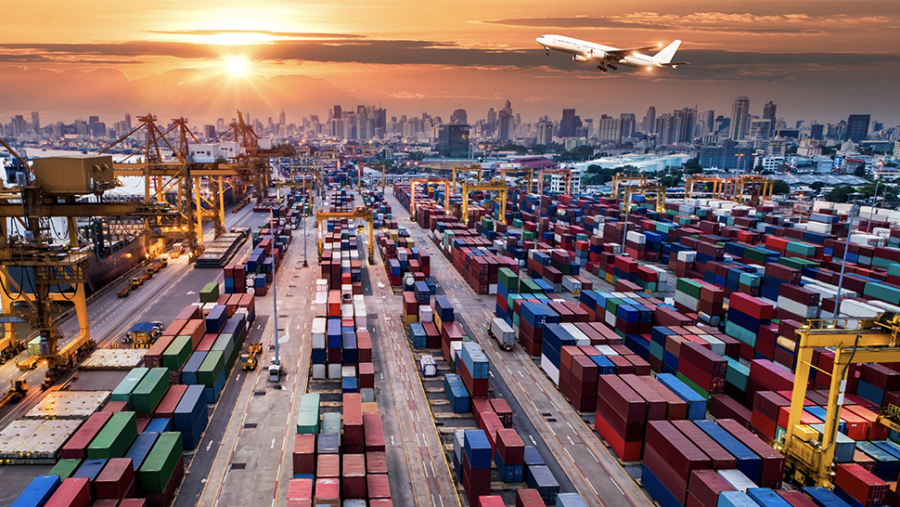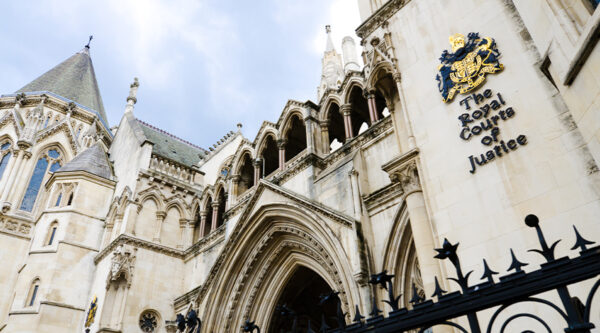
Importing PPE and medical devices without VAT or import duty – your questions answered
30 September 2020

Q: How is it possible to pay no import duty and VAT on protective equipment, relevant medical devices or equipment brought into the UK from non-EU countries during the coronavirus (Covid-19) outbreak?
A: No import VAT and customs duties are payable on specified goods imported for one of the following purposes:
- for distribution free of charge to those affected by, at risk from, or involved in combating the coronavirus
- to be made available free of charge to those affected by, at risk from, or involved in combating the coronavirus outbreak, while remaining the property of the organisations importing them
- goods imported by a disaster-relief agency for distribution free of charge, or to meet its own needs, during the coronavirus outbreak.
To benefit from this relief, the goods must be imported by or on behalf of an organisation based in the UK who are state organisations, including state bodies, public bodies and other bodies governed by public law and other charitable or philanthropic organisations approved by the competent authorities. Such organisations include those registered by the Charities Commission or the Office of the Scottish Charities Regulator, state organisations which are devoted to welfare and non-profit entities dedicated to the welfare of those in need such as hospitals, youth organisations, homes for the elderly etc.
Q: Which goods qualify for relief?
A: The relief applies to imports of a specified list of items (customs codes) which includes, for example, protective equipment and clothing, disinfecting items, soap, paper towels and toilet tissue, as well as certain relevant medical devices or equipment for the coronavirus outbreak. The full list of commodities and their codes were updated by HMRC in June 2020.
Q: what are the conditions for claiming relief?
Goods can be imported on behalf of one of the organisations listed above if they are to be donated or sold (directly or indirectly) to them. The importer must have arrangements in place to sell or donate the goods to one of the organisations when they are imported into the UK.
If your goods are loaned, hired out or transferred to an organisation eligible for the relief, the relief will remain in place as long as the conditions continue to be met.
If the imported goods are no longer being used by those affected by coronavirus, HMRC needs to be notified in advance of the goods being loaned, hired out or transferred for consideration or free of charge. In such cases, import duties and VAT will be charged on the imported goods.
You may be able to apply a zero rate of VAT to imports and sales of personal protective equipment (PPE) as recommended by Public Health England in April. This could apply if you import or sell PPE and do not meet the criteria to claim relief for import duties and VAT. The temporary VAT zero rate comes into effect from 1 May to 31 October 2020 and covers product such as:
- disposable gloves
- disposable plastic aprons
- disposable fluid-resistant coveralls or gowns
- surgical masks – including fluid-resistant type IIR surgical masks
- filtering face piece respirators
- eye and face protection – including single or reusable full face visors or goggles
Q: What practical steps would I need to take to do this?
A: Apply for authorisation to apply relief. If you are importing goods on behalf of one of the organisations listed, you need to get authorisation to claim this relief from the National Import Relief Unit (NIRU). You can email [email protected] for an application form.
If you have imported the items on behalf of another organisation that does not qualify, but you want to claim the relief as the importer, you must hold clear evidence that demonstrates the end user of the goods was one of the eligible organisations. This evidence must also allow HMRC to trace the goods from their initial import through to their ultimate end use by one of these organisations.
Select goods that qualify for relief
Use the commodity code list to find all goods you can claim relief on. Some codes are duplicated as multiple items are covered by the same code. In August, the UK updated the Covid-19 Commodity Code list and eliminated the VAT of more products that are used in the battle against the pandemic.
Claiming relief for zero rate VAT on imports and sales of PPE
To claim the zero rate VAT relief you must first have been authorised by NIRU who will then issue you with a unique certificate. You must claim relief by completing an import declaration in the Customs Handling of Import and Export Freight (CHIEF).
You can claim relief on your declaration in CHIEF by entering in:
- box 37 the customs procedure code 40 00 C26
- box 44, declaration/notes, enter document codes 9AID and/or 9AIV and status codes JP or UP as appropriate
- box 44 enter the NIRU certificate number as a GEN 13 Additional Information statement
Information on the goods entered to this relief must be entered to the approved entity’s records and retained for three years from import date.
Reclaiming payment of import duties and VAT on which no relief was claimed
You may be eligible able to reclaim payment of import duties on goods imported on or after 30 January but on which no relief was claimed.
You will need to request authorisation by contacting the NIRU by emailing [email protected] for an application form. Once you’re authorised by NIRU, you can submit your claim to the National Duty Repayment Centre (NDRC) for repayment of overpaid customs duty and import VAT.
You will need to provide the following:
- a copy of your duty and VAT relief certificate
- a copy of your order or other supporting documents evidencing your eligibility for this relief
If you’re VAT registered and seeking repayment of overpaid import VAT, you must do this via your claim to the NDRC rather than adjusting your VAT return. You should provide a disclaimer that the import VAT has not been/will not be reclaimed, in part or in whole, as input tax on your VAT return.
If you’re a fully taxable trader, have already had your C79 and claimed VAT through your return, you should do nothing regarding the VAT and only reclaim the customs duty.
If you have restricted input tax recovery or already claimed the eligible tax on a VAT return or plans to claim the previously irrecoverable import VAT, you can make a claim to the NDRC for the full amount of tax and not just for the previously irrecoverable import VAT.
You need to:
- adjust the relevant input tax claim on your VAT return to nil
- provide a disclaimer that you have adjusted your VAT account so that no input tax has been recovered on the imports
Q: What period does this apply to?
A: The relief applies to imports into the UK from 30 January 2020 until 31 October 2020.
Q: Is there any likelihood of a comparable arrangement coming into place post Brexit (for the same goods from EU countries)?
There are still currently no changes to trade with EU countries for as long as the UK remains in a transition period (ending on 31 December 2020), which remain free of formal barriers for this period. However, the form of the UK-EU trade deal (if any) that will be finalised post Brexit and its effects are uncertain at this point. If the UK leaves the EU VAT area and the Customs Union with no deal, it will become a third country and supplies of goods crossing international borders will become imports and exports, attracting import VAT and customs/excise duties.
With regards to the import of medical supplies during the pandemic, the EU has also made emergency provision for relief from tariff and import VAT payments on certain items – largely PPE and wider medical supplies that applies retrospectively from 30 January onwards. The relief applies to imports from non-EU countries. Unless the EU-UK trade deal specifies conditions for import of Covid-19 medical supplies, the UK may be treated as a third country for the trade of such medical supplies.
Regarding imports into the UK, HMRC has published UK tariffs from 1 January 2021, which provides details on what the tariff applies to, how to check the tariff, and tariff relief on some goods for tackling coronavirus. The UK government has also provided a sample list of customs agents, freight forwarders and other intermediaries that SMEs should contact for commercial assistance as of 1 January 2021.
Q: What are the potential risks and advantages of the change proposed, to importers and exporters, and also competition for UK manufacturers of the same goods?
A: While importers in the UK may benefit from relief on import duties and VAT on qualified goods and also may claim zero VAT relief on import and sale of PPE, VAT on domestic supplies is not affected by this relief. Domestic traders must charge and account for VAT on the onward sale at the normal rate.
This disparity may make it more financially attractive for users of Covid-19 medical supplies to import or have the supplies needed imported through a qualifying organisation and thus benefit from the relief rather than being charged VAT if buying from a domestic manufacturer. This in turn may reduce production and activity at the domestic level, negatively impacting the economy.
However, there is a temporary zero rate that has come into effect from 1 May until 31 October 2020 for the supply to any business or individual of PPE as recommended by Public Health England on 24 April 2020, for use for protection from infection with coronavirus. This may alleviate the pressures faced by the domestic traders and encourage more local production of PPE.
Impact on importers
Currently, certain goods are eligible for import with relief from import duties and VAT, and importers facing serious economic or social difficulties can rely on several provisions that allow for financial leniency.
If the UK leaves the EU without a trade deal, some businesses will also have to make import-export declarations for the first time – a change that may affect between 145,000 and 250,000 businesses who conduct their trade solely between the UK and EU27.
A further 73,000 businesses, who trade with both EU and non-EU countries, will now have to make declarations for their UK-EU trade in addition to their non-EU trade. This is likely to create much uncertainty and even processing backlog which may restrict international trade through the UK. The HMRC has proposed a postpone accounting system that could shift the VAT accounting and payment away from the border to the VAT return in a ‘no-deal’ scenario in an effort to alleviate such concerns.
Impact on exporters
For a limited time from 14 March 2020 to 25 May 2020, the UK government implemented the Commission Implementing Regulation (EU) 2020/568 requiring exporters to apply for an export license to export PPE products outside of the EU. Although this may have temporarily restricted the export of PPE to countries outside the UK, the increased demand within UK and the EU may not have negatively impacted the total sales, although it created additional regulatory barriers and associated delays in the export process.
On the other hand, the Department for International Trade has announced that UK Export Finance (UKEF) has expanded its export insurance policy scope to cover countries such as the USA, EU, Australia, Japan and Switzerland among others. UKEF will help companies concerned about the impact of coronavirus to export with confidence, by offering insurance that can cover up to 95% of the value of an export contract. The insurance will protect against the risk of non-payment should UK exporters’ customers become insolvent or their government actions make fulfilling the contract impossible. This may motivate UK exporters covered under the scheme to expand trade to more countries.










